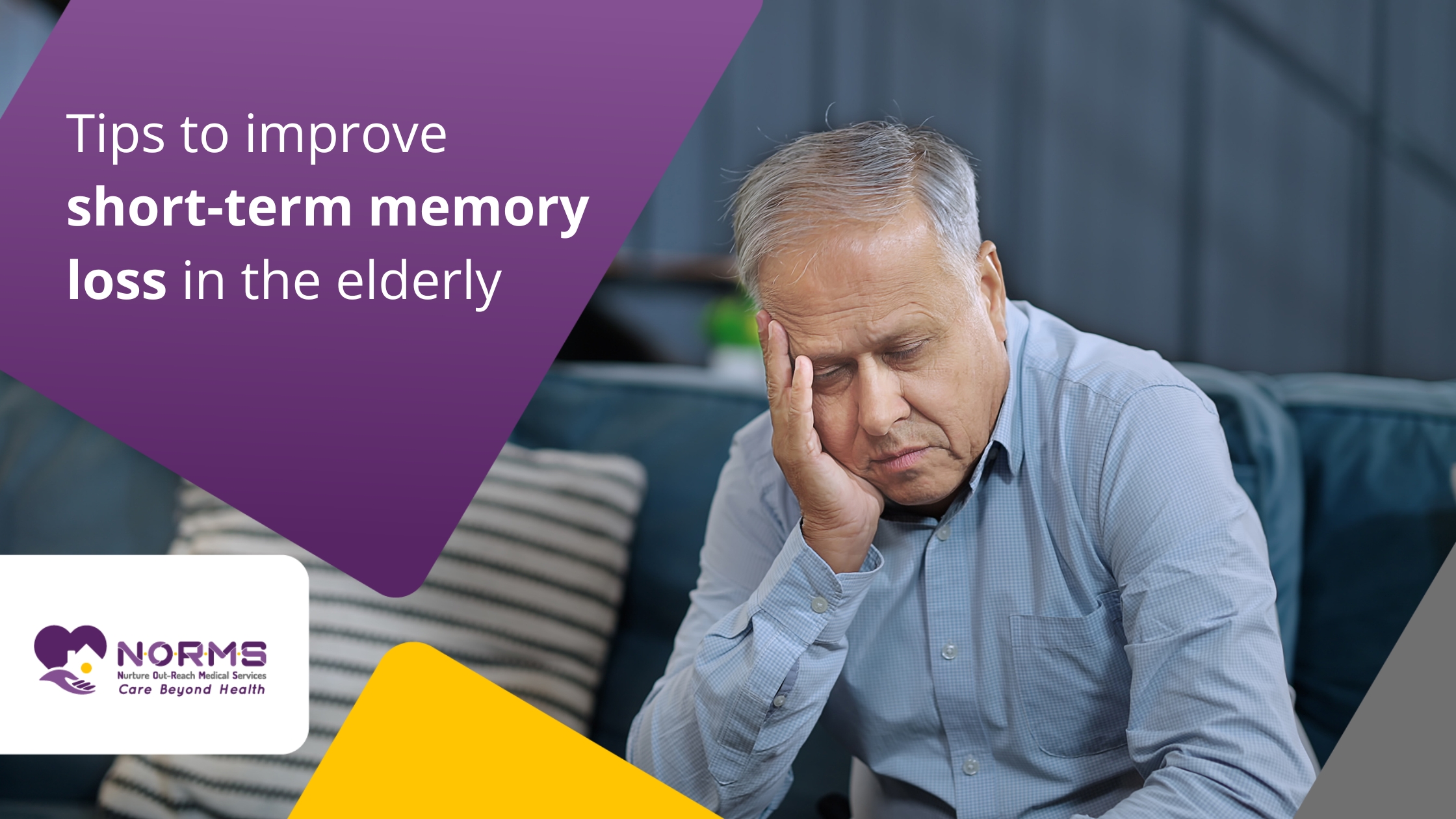
As people age, a decline in memory is normal. It is well known that short-term memory impairment can be very difficult. It can interfere with daily living, function in social settings, and overall quality of life. Fortunately, there are some ways to enhance the short-term memory and younger functioning of the elderly.
Table of contents
Cognitive impairment, the significant signs of short-term memory loss, can be attributed to many factors in the elderly. Knowing these may help to determine measures that can be taken to avoid or control memory problems. Below are some common causes:
With age, young people’s memories and thoughts also begin to fade slightly as people age naturally. neuroplasticity, decrease in neurotransmitter quantity and emission speed and dispositional changes all affect the ability to recall recent information.
Excessive stress and anxiety greatly reduce the ability to focus on academic material and information processing. Prolonged stress increases cortisol levels, which are known to disrupt memory creation and recall, hence short-term memory.
There is evidence that sleep is important for learning and memory processes that take place as we sleep. Sleeping or having poor quality sleep hinders memory, attention, the ability to learn as well as to recall recent incidences.
Lack of the B vitamins, vitamin D, iron, and omega-3 fatty acids that are important for the proper functioning of the brain will lead to problem-solving and short-term memory difficulties. A balanced diet is important and a lack of it can make it difficult to concentrate and to memorize new information.
Medications that affect blood pressure, depressants, anxiety, pain, and allergy medications also have a negative impact on memory. Among such drugs, sedatives, anticholinergics, and certain heart medications seem to be the most dangerous ones.
Some diseases that impact the brain and lead to short-term memory loss include thyroid disorders, diabetes, high blood pressure, heart diseases, and kidney ailments. These diseases can hinder blood flow and nutrients to the brain if not well managed.
Daily exercise can improve blood supply and oxygenation to the brain, thereby supplying nutrients to the brain in large quantities. Light or moderate exercises, such as brisk walking, swimming, or yoga, go a long way in improving cognitive health. The next should be at least 30 minutes of moderate exercise about five times a week.
Studying a new language, a new musical instrument, or even taking up knitting or painting also helps keep the brain healthy and improves short-term memory.
Eating habits and diet play an important role in taking care of your brain or the brain you want to have. Cognitive performance can be improved by antioxidant rich foods, Omega 3 fatty acids, vitamins and mineral food sources. These should include green leafy vegetables, nuts, berries, fish, and whole grain foods. Reducing access to processed foods, sugars and saturated fatty acids is also good for health.
During sleep memory is strengthened and can be assumed that sleep is important for learners as it helps to consolidate information. The elderly should sleep at least 7-8 hours every night and there should be meaningful sleep. The easy thought control and proper setting of sleep and wakefulness can improve the efficiency of short-term memory storage.
Some cheerful findings suggest that practicing mindfulness exercise and meditation can help increase the abilities of concentration, paying attention, and memory. Meditation exercises isolate stress, which causes memory loss most of the time. Practicing slow, equal breaths, or even some sort of meditation, or just the ability to look at a tree and know that it is a tree, and is distinct from everything else.
A recommendation is to allow the client to use certain tools such as calendars, lists of tasks to accomplish, and reminders. Smartphones and tablet reminders can assist the elderly to remember some key events or tasks that are important in their day by going a bit easy on the memory.
Physical isolation and lack of companionship are not healthy for the solitary based on its visible impact on their ability to remember things well. Being active in social networks or going for a walk with friends, meeting relatives or joining a club, can help the brain function actively and strengthen memory. This can common be through joining a group activity or becoming a volunteer in some organization.
The lack of water in the body affects all aspects of the brain, including short-term memory. It is important that in order for the elderly to benefit from good working brain, they must take enough fluids, preferably water in a day.
People often experience loss of memory and poor concentrating abilities when they are stressed and anxious. Arranging work so that simple relaxing exercises such as deep breaths and meditating or taking a short walk on workplace can minimize stress.
If the memory loss is short-term, then it may indicate some other health problem such as thyroid problems or any vitamin deficiency or may be initial stage of Alzhemier’s disease. However, if the memory loss is persistent or if, at one time, it appears to worsen, then the person should seek a healthcare provider’s advice and probably undergo an examination to have appropriate management done on them.
If there is short memory impairments in elderly people, it can be treated and the result of changes for the better can be expected if the patient engages in physical activities, brain shaping exercises, taking balanced meals, recommended sleep, keeping stress, practicing mindfulness, and social interaction. Habits that include taking reasonable lifestyle changes and periodic visits to the doctors go along way in assisting aging people to retain their memory and; hence enhancing their quality lives.
Antihistamines, antidepressants and sedatives are some of the drugs that cause side effects that negatively affect memory.
A diet with plenty of vitamins, omega three fatty acids, and antioxidants strengthens the brains, whereas lack of them weakens memory.
Of course, physical inactivity increases blood flow to the brain and enhances the memory and other cognitive abilities.